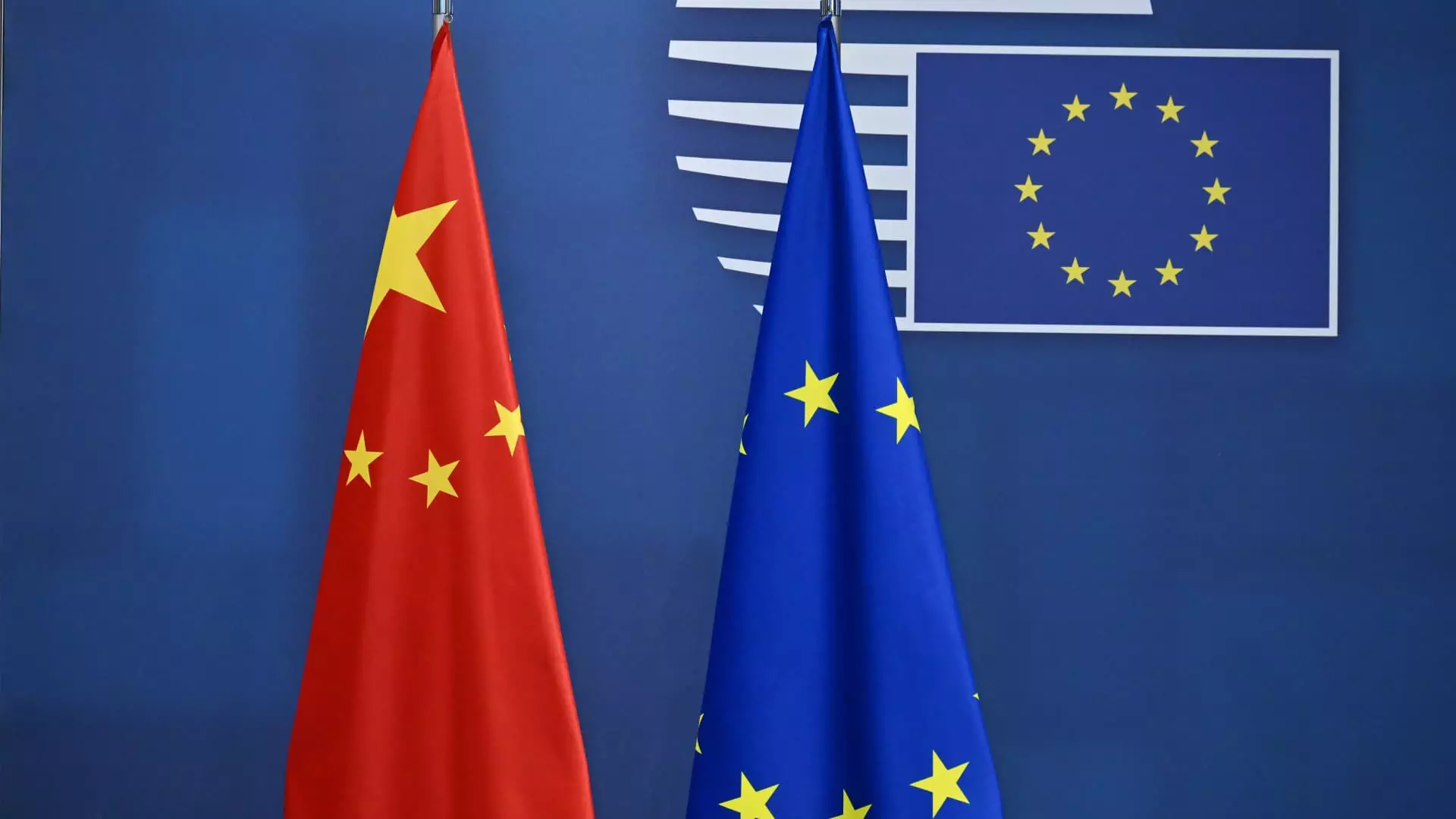The relationship between the European Union and China, once heralded as a promising axis for global economic growth, has degenerated into a battlefield fraught with suspicion, retaliations, and strategic discord. What was once a trade partnership driven by mutual aspirations for prosperity now teeters on the edge of outright confrontation. The recent escalation in trade tensions starkly reveals how geopolitical rivalry and economic protectionism threaten to undo years of efforts aimed at fostering cooperation. For those who believed that economic interdependence would stabilize relations, recent developments serve as a harsh reminder of how fragile such bonds truly are in a climate of rising nationalism and strategic divergence.
The EU’s attempt to shield its domestic industries from Chinese overcapacity and unfair trade practices has been met with fierce retaliations, turning what could have been opportunities into sources of conflict. From restrictions on medical device tenders to import curbs on products like brandy, China’s resort to trade weaponization underscores a fundamental shift: economic tools are now integral in geopolitical power struggles. The European Union’s increasing assertiveness in protecting its markets has not only intensified tensions but also exposed the superficiality of their earlier cooperative stance. It’s evident that the “economic partnership” was always vulnerable to the overarching political currents sweeping through both entities.
Strategic Divergence and Rising Nationalism
At the core of the conflict lie starkly opposed economic visions. China’s relentless pursuit of export-driven growth, coupled with persistent overcapacity and the strategic use of trade as leverage, clashes with the EU’s emphasis on safeguarding its industrial base and pushing for greater sovereignty in its supply chains. Behemoth industries, especially in technology, automotive, and energy sectors, find themselves caught between resisting Beijing’s dominance and navigating their own national interests. The EU’s shift towards economic resilience—exemplified by initiatives to boost economic autonomy—is viewed by China as a threat to its global ambitions, prompting aggressive responses like the targeted export restrictions on rare earth minerals.
This mutual suspicion is compounded by internal political dynamics. Nationalist sentiments within European countries have amplified calls for protectionism, hampering the EU’s ability to negotiate from a position of strength. Meanwhile, China’s leadership appears confident enough, bolstered by its recent economic resilience and strategic victories in trade disputes with the US. The result is a perilous game of brinkmanship, where each side perceives concessions as concessions of sovereignty, leading to further entrenchment of their respective positions rather than a path toward compromise.
Trade Wars, Weaponization, and Global Consequences
Trade measures, initially meant as reciprocal responses, have morphed into tools of coercion and strategic dominance. The EU’s recent policies targeting Chinese medical equipment and the investigation into European brandy imports are emblematic of a broader pattern—using trade as a means of political signaling. Conversely, China’s export restrictions on critical materials like rare earth elements serve not only to pressure the West but also to establish itself as an indispensable player in global supply chains. This tit-for-tat escalation fuels fears of a broader decoupling, where economic interdependence is replaced by strategic self-sufficiency at the cost of global stability.
Remarkably, these trade frictions come at a time when the United States, under Donald Trump’s policies, has also adopted a more aggressive stance on tariffs, arguably leaving the EU and China with fewer cues for cooperation. Instead of capitalizing on shared vulnerabilities and the desire for economic resilience, both sides appear increasingly immovable. This divergence signals not just an economic rivalry but a geopolitical realignment, with the risk that the global order fragments into competing spheres of influence rather than a harmonious interconnected system.
The Future of EU-China Relations: A Fragile Dance on the Edge
The upcoming EU-China summit, expected to feature high-stakes discussions between Ursula von der Leyen and Xi Jinping, is viewed with skepticism by many analysts. Both parties seem resigned to a dialogue overshadowed by mistrust rather than cooperation. The European Commission’s hardened stance, paired with China’s diplomatic assertiveness, suggests that negotiations are more likely to confirm disagreements than resolve them.
What’s clear is that the economic narrative is increasingly intertwined with strategic calculations—trade policies are no longer simply economic instruments but weapons in a broader geopolitical game. The potential for unresolved tensions to spiral further is high, especially as both powers double down on their respective agendas. For the EU, maintaining a delicate balance between safeguarding its industries and engaging with China’s market remains a monumental challenge. For China, asserting dominance while countering EU efforts to limit its strategic influence might prove to be a classical case of strategic overreach.
The geopolitical landscape is shifting rapidly, and the once promising partnership risks becoming a cautionary tale of how economic interdependence can be weaponized in a wider power struggle. As both sides prepare for future confrontations, the true losers appear to be global stability, multilateral cooperation, and the prospect of a balanced, integrated international economy. The days of naive optimism about EU-China relations seem distant; what remains is a fraught, unpredictable dance on the brink of fracture.


Leave a Reply